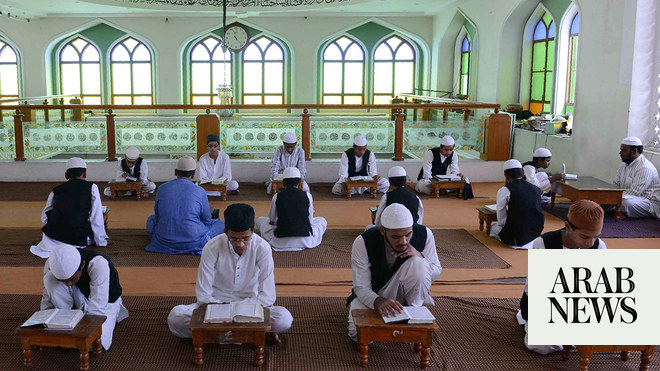
Colonial-era law has been widely seen as a means to suppress dissent
Supreme Court also allowed people detained under the law to seek bail from courts
NEW DELHI: India’s Supreme Court on Wednesday put a stay on a controversial colonial-era sedition law, under which hundreds of journalists and activists have been imprisoned in the past few years.
The 19th-century law, which the British colonial government used against Mahatma Gandhi and other leaders of a campaign for independence, remained on the books after India’s independence in 1947, and has been widely seen as a means to suppress dissent.
Most of the 405 sedition cases for criticizing the government have been registered under the law since 2014, when Prime Minister Narendra Modi took office, according to data compiled by Article14, a website run by Indian lawyers, journalists and academics.
The Supreme Court ruled the law should not be operational until further orders, adding that those who have been charged or imprisoned under its provisions could seek bail from trial courts.
“We expect that till re-examination of this law is complete it will not be used,” N.V. Ramana, India’s chief justice, said in the ruling.
The apex court said the law was “not in tune with the current situation and it was intended for the time when the country was under colonial law.”
The decision followed a petition by the Editors Guild of India, opposition politicians, retired military officers and independent journalists who challenged the law. The Indian government said it respected the ruling, but Law Minister Kiren Rijiju told reporters that “the court should respect government.”
Journalists and activists cautiously welcomed the decision. Sanjay Kapoor, secretary of the Editors Guild of India, said it was a “big step forward in stopping the government from using the sedition law against adversarial reporting, which is the core of journalism.”
But Vinod K. Jose, executive editor of The Caravan magazine, who is facing 10 sedition charges, told Arab News he was “very doubtful the sedition law and such draconian anti-democratic laws will disappear in both spirit and letters for good.”
He added: “The consequence of the Supreme Court order might be that the word ‘sedition’ might disappear, but old wine might appear in new bottles.”
Dhiren A. Sadokpam, a journalist in northeastern Manipur state who was booked under the sedition law last year, said the Supreme Court’s order to suspend all pending cases registered under the law was a “big relief.”
“Everybody knows that the sedition law is outdated and not to be used in a democratic society like ours. I hope the state forces and the government authorities follow the court’s order,” he told Arab News.
Sanjay Hegde, a Supreme Court lawyer, was optimistic that Wednesday’s ruling was the beginning of a process to scrap the law, which he said was “an anachronism from pre-independence times.”
“The law survived constitutional scrutiny in the early years of the Supreme Court, and is now being tested against a constitution that has evolved with the experience of many years,” he added. “The government would be well advised not to look to salvage the law, but to completely abolish it altogether.”












